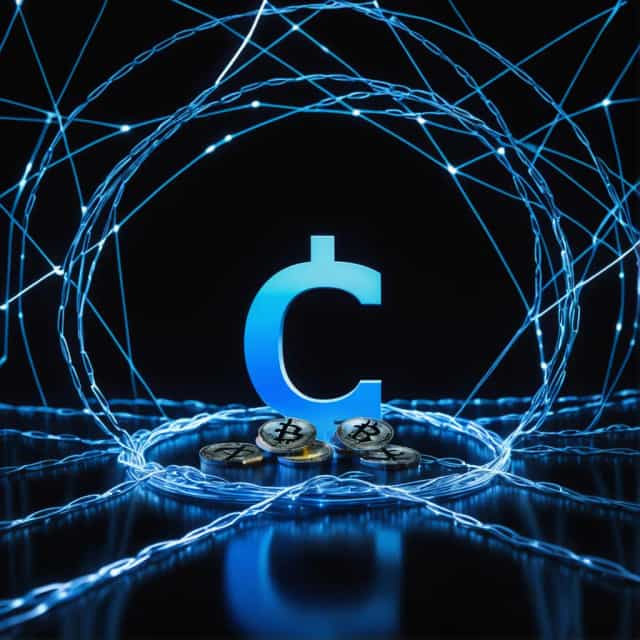
Image source: Block Media
Grayscale Ventures Further Into Altcoin ETFs with Bitcoin Cash ETF Filing
Grayscale Investments, one of the preeminent digital asset managers in the world, is signaling its ambition to broaden its altcoin-focused exchange-traded fund (ETF) lineup. The firm has officially submitted filings to the U.S. Securities and Exchange Commission (SEC), including a formal application to convert its Bitcoin Cash (BCH) trust into a fully operational ETF.
Bitcoin Cash, Litecoin, and Hedera ETFs Take Center Stage
On October 10, industry news outlet CryptoNews revealed that Grayscale had filed a Form S-3 registration statement with the SEC to transform its existing Bitcoin Cash trust into a tradable ETF. The proposed ETF is slated for listing on NYSE Arca, with BNY Mellon designated as the custodian and Coinbase tasked with dual roles as prime broker and custodian.
In parallel, Grayscale filed a similar Form S-3 registration for converting its Litecoin (LTC) trust into an ETF. Like the Bitcoin Cash ETF, Litecoin’s ETF would also list on NYSE Arca, contingent on SEC approval. Grayscale’s proactive approach places it alongside rivals such as 21Shares and CoinShares, who are similarly awaiting regulatory green lights for their Litecoin-based ETFs.
Turning its attention to the Hedera (HBAR) ecosystem, Grayscale employed a slightly different regulatory pathway. The firm filed a Form S-1 registration for an HBAR ETF, coupled with Nasdaq submitting a 19b-4 rule-change proposal aimed at listing the ETF. While this filing progresses through procedural hurdles, the SEC has deferred a final decision on the proposal until November 12. This means that the regulator faces a deadline to either approve or reject the listing, adhering to the standard 180-day review period outlined by U.S. securities law—a timeline that can be extended by up to 60 days if needed.
Innovative Pathways to Accelerate ETF Approval
Grayscale is leveraging unique strategies to streamline the approval process for its altcoin ETFs. The filings for Bitcoin Cash and Litecoin ETFs adhere to "generic listing standards," which, if officially sanctioned by the SEC, could eliminate the necessity for individualized 19b-4 rule-change proposals. This approach may drastically simplify and speed up regulatory approvals. While these listing standards have yet to gain regulatory approval, Grayscale appears determined to explore every avenue to expedite its ETF rollouts.
Competition Escalates in the Digital Asset ETF Arena
The move to expand its lineup of altcoin ETFs aligns with Grayscale’s broader goal of dominating the cryptocurrency investment space. Shortly before these filings, the firm applied to convert its Chainlink (LINK) trust into a spot ETF. Furthermore, Grayscale maintains a pipeline of applications for altcoin ETFs linked to popular digital assets such as Dogecoin (DOGE), Ripple (XRP), and Avalanche (AVAX).
This surge in applications underscores the growing competition within the cryptocurrency ETF market. Presently, the SEC is reviewing more than 70 digital asset ETF applications, many of which focus on altcoins. Globally, projects tied to prominent cryptocurrencies like Solana (SOL), XRP, Cardano (ADA), and Dogecoin are emerging as key contenders for regulatory approval, intensifying the race among asset managers to launch these products.
Grayscale’s Strategic Expansion in Response to Growing Market Demand
Grayscale’s aggressive filing spree illustrates its dedication to diversifying its ETF portfolio while capitalizing on the increasing investor appetite for regulated cryptocurrency investment vehicles. By embracing a multi-faceted regulatory strategy and focusing on altcoin ETFs, the asset manager positions itself as a central figure in the burgeoning crypto ETF landscape.
As demand for institutional-grade investment options in digital assets continues to grow, Grayscale’s latest filings highlight not only its forward-thinking approach but also the intensifying battle among industry leaders to capture market share in this fast-evolving sector. The ongoing developments not only fuel competition but pave the way for broader adoption of cryptocurrency ETFs, marking a pivotal moment in the intersection of traditional finance and blockchain innovation.










